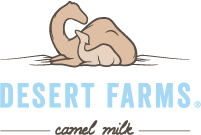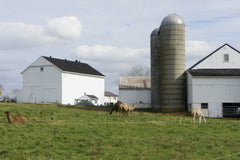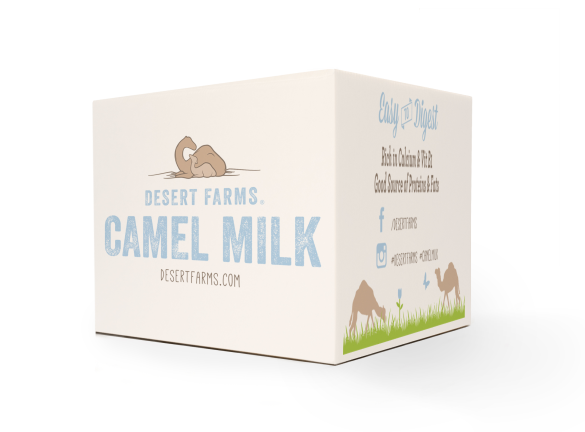Our Practices

Did you ever think about leaving a legacy?
At Desert Farms, we’re aiming to build a good legacy from the very start. We want to leave things better than we found them. We’re striving to do business in an enlightened way, by taking responsibility for our impact on society and the environment, and making it as positive as possible. It's part of our quest to sustain an ethical business in this wonderful world. Below is what we’ve done so far, plus our strategy for the future.

Only One Planet
If everyone lived as we do in the US, we'd need three planets to support us. So the simple question we ask at Desert Farms is, "How can we use less?" and “How can we make more?”
It's a great question. So we look at the whole business. Since we use most of the Earth's resources in our supply chain, it's essential to work alongside our farmers to reduce where possible. From water and energy efficiency (our Amish farmers are super low energy users), to reduced waste production and recycling (they also don’t believe in excess consumption of ANY kind), all of which translate directly to our carbon footprint.
Quality Camel Milk
Milk is the heart of our business, so we take it seriously. It has to taste great, but we also want to buy from farmers who look after their workers, herds and the environment. Our milk comes from US camel farmers only, of all types and sizes (large groups and tiny family farms) with an average herd of 6 camels. While there is definitely no 'one size fits all' approach to buying responsibly, the following are all essential in our buying:

We ask our farmers to use “Good Manufacturing Practices” and abide by fair minimum standards to improve their social and environmental performance year after year. Our strategy is to work them and help them to get there. Achieving our goals is a journey with a daily destination of quality.

Our camel milk contains no added hormones and comes from camels that are all grass-fed with non-GMO feed. No rBST, rBGH, and GMO free.* The result of these processes means customers get the freshest and most natural camel milk. It is exactly what natural food consumers and those looking for healthy food choices for their families are hoping to find.
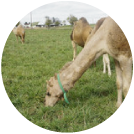
All our camels are pasture raised and eat a complex diet of hay, grass and alfalfa pellets. Much of the year, the camels harvest their own feed from the farms’ pastures, choosing different feed depending on the weather, the camels health, the land on the farm, how close the camel is to giving birth, and the time of year. During the winter months when the grass is frozen in the Midwest, our farmers provide their camels with stored forage or homegrown alfalfa pellets. Depending on the farmer and the situation, farmers may include organic oats.
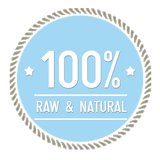
We do not homogenize Desert Farms Camel Milk because we believe that milk should be consumed in the most natural state possible. Non-homogenization allows our products to maintain its natural sweet flavor and smooth texture. Chefs actually recommend using non-homogenized dairy products as ingredients to make the best dairy based foods. So while you’re at home check out our Recipe Page and start cooking.
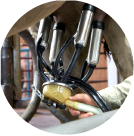
We get our camel milk from the first milking of the day. Then we bottle and label it right on the farm, within hours, in small batches to ensure the delicate camel milk is not exposed to contamination. There are no delays in transport or storage, which means it is at its peak of perfection. Our camel milk is not and will never be shipped to a third-party contractor for bottling. We try to limit the number of people dealing with your products to ensure freshness and purity.
Desert Farms does not take sides in this debate. We simply use farmers committed to the highest standards of cleanliness, which allow us to source our milk and sell it to customers who wish to safely consume raw camel milk.

However we do believe in giving our customers the choice, which is why we also offer our ‘gently’ pasteurized camel milk. Our camel milk is pasteurized at a low temperature to preserve the fabulous, fresh flavor of camel milk. The low temperature would destroy dangerous pathogens (if any), but not the helpful bacteria that our bodies need. Desert Farms low-temperature VAT pasteurization method allows us to heat our camel milk in small batches at 145° Fahrenheit (the lowest legal limit) for 30 minutes then quickly cooled, eliminating harmful microorganisms but leaving valuable enzymes untouched.
Desert Farms believes camel milk is healthy in both forms, raw and pasteurized. We want to give our customers the right to choose, to be happy and have peace of mind when using our products. The nutritional differences of raw and pasteurized milk are thought to be slim, although we do believe that both raw and pasteurized camel milk that are pasture-raised and grass fed is the healthiest option. Raw camel milk is only available for shipment or pick up in the state of Missouri, no exceptions. All other products are available nationwide and internationally.
Sustainable Packaging
Our packaging must have the lowest possible impact. All bottles are made from the #1 recyclable plastic called polyethylene terephthalate or PETE. This BPA-free plastic is the most commonly accepted plastic in curbside recycling programs. It’s made in the USA and sourced by other Amish families. Obviously, we ensure our packaging does the job it's supposed to. Not much point in reducing environmental impacts if it makes our camel milk go funny. There's always more work to do in this area, so we'll keep pushing till we reduce everything can be reduced. But honestly, we run a really tight buggy already.
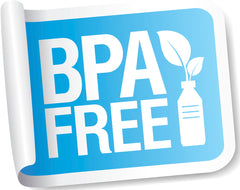
Home is where the heart is. We believe in supporting US produce, which is why we only deliver the best American camel milk. Our camel milk comes from small, Amish/Mennonite family farms where the average herd is about 6 camels and where most work is still done by hand.
The product you’re enjoying contributes to building new markets and creating a sustainable source of income for small farming families. Adding camel milk to their product line has enabled these hard-working families to live healthfully and keep our country’s beautiful green acreage in their good stewardship. With Desert Farms’ help, our farmers don’t have to worry about sales and marketing, so they can spend more time in the field. This creates a higher level of camel milk production, which increases their income and creates more supply. The result is a magnificent and growing camel herd that’s giving the nation delicious-tasting camel milk!
It’s also nice to know that the farmers treat their camels very well, often living very close to them and spending hours per day on their care. We observe and encourage humane animal treatment, and are glad to help preserve our country’s natural resources and biodiversity.
